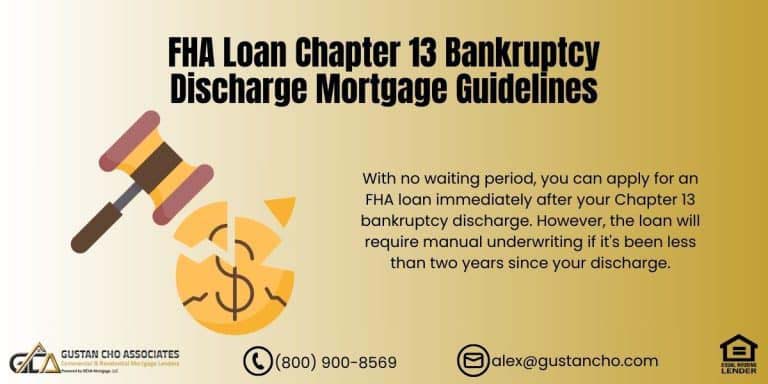Conforming Loan Requirements: 2024 Guide for Homebuyers and Refinancers
If you’re thinking about buying a home or refinancing your current mortgage in 2024, it’s essential to understand conforming loan requirements.
These loans enjoy popularity due to the criteria established by Fannie Mae and Freddie Mac, which generally makes them easier to qualify for and more cost-effective. Conforming loans might be your best option, whether buying your first home, a second home, or an investment property.
In this guide, we’ll break down everything you need to know about conforming loan requirements, including updated guidelines for 2024, the minimum credit score you need, down payment options, and waiting periods after financial setbacks like bankruptcy or foreclosure. By the end, you’ll clearly understand how to qualify for a conforming loan, making the homebuying or refinancing process less stressful and more straightforward.
What Are Conforming Loans?
Conforming loans are called so because they adhere to the standards established by Fannie Mae and Freddie Mac, two major entities in the mortgage sector. These entities acquire loans from lenders, combine them, and then offer them as mortgage-backed securities (MBS) to investors. However, before this can happen, the loans must fulfill specific criteria, including loan amount, credit score, and debt-to-income (DTI) ratios.
If you’re seeking the most favorable mortgage rates, a conforming loan is typically the best option since they usually offer lower interest rates compared to non-conforming loans or jumbo loans that do not meet the standards of Fannie Mae and Freddie Mac.
Looking for a Reliable Loan Option? Consider a Conforming Loan!
Contact us today to learn more about conforming loans and how you can qualify.
What’s New for 2024?
For 2024, the basic conforming loan requirements remain the same as in previous years. However, there are a few updates you should know about:
- Conforming Loan Limits: The highest conforming loan limit for single-family residences in many areas of the U.S. has seen a modest increase to align with growing home prices. Loan limits are higher in high-cost areas, so make sure to check your county’s limit.
- Waiting Periods: If you’ve experienced financial hardship, such as foreclosure or bankruptcy, the waiting periods to qualify for a conforming loan are now better clarified and depend on your circumstances. We’ll discuss this later in this guide.
Conforming Loan Minimum Down Payment
One of the biggest questions borrowers have is, “How much do I need for a down payment?” With conforming loans, this can vary based on your credit score, the type of home you’re buying (primary, second, or investment property), and your debt-to-income ratio (DTI).
Here’s a quick breakdown:
- Primary Residence: First-time homebuyers can qualify for as little as 3% down on a conforming loan. You’ll need at least 5% down if it’s not your first home.
- Second Home: If you’re buying a vacation home or second property, you’ll typically need a 10% to 20% down payment.
- Investment Property: Buying an investment property requires at least a 20% down payment, and the loan terms might be stricter.
Conforming loans offer flexible down payment options, a big draw for many borrowers, especially first-time homebuyers. And remember, a higher down payment can help you avoid private mortgage insurance (PMI), which we’ll discuss next.
Credit Score Requirements for Conforming Loans
Your credit score is one of the most important factors when qualifying for a conforming loan. In 2024, here’s what you’ll need:
- Minimum Credit Score: You’ll need at least a 620 credit score to qualify for a conforming loan.
- Best Rates: Aim for a 740 or higher credit score to get the best interest rates. The higher your score, the better the terms you’ll get on your loan.
If your score is lower (620 to 699), you may still qualify but expect to pay a higher interest rate. Additionally, your debt-to-income ratio and down payment will determine whether you can get approved and at what terms.
How Debt-to-Income Ratio Affects Your Loan
Your debt-to-income ratio (DTI) is crucial in qualifying for a conforming loan. To find your debt-to-income ratio (DTI), divide your total monthly debt payments by your gross monthly income. Most lenders like to see a DTI of 36% or lower. However, some may accept higher ratios, especially if you have a good credit score or make a large down payment.
If your debt-to-income ratio exceeds 45%, you may need to focus on reducing some debt or boosting your income before applying for a conforming loan. Lenders want to make sure you can easily handle your mortgage payments and other bills.
Mortgage Insurance on Conforming Loans
If you put less than 20% down, you must pay for private mortgage insurance (PMI). The cost of PMI depends on your credit score, loan amount, and down payment. Generally, the better your credit score and the larger your down payment, the lower your PMI costs.
Good news: Once you reach 20% equity in your home, PMI can be removed, saving you hundreds of dollars each month. Unlike FHA loans, where mortgage insurance is required for the life of the loan, conforming loans allow you to get rid of this extra expense once you’ve built enough equity.
Conforming Loan Waiting Periods After Bankruptcy or Foreclosure
Life happens, and if you’ve faced bankruptcy or foreclosure, you might wonder when you can qualify for a mortgage again. Here’s the breakdown for 2024:
- After Chapter 7 Bankruptcy: You must wait 4 years from the discharge date to be eligible for a conforming loan.
- After Chapter 13 Bankruptcy: If you’ve completed your repayment plan, the waiting period is 2 years from the discharge date. If your Chapter 13 was dismissed (without completing the plan), you’ll need to wait 4 years from the dismissal date.
- After Foreclosure or Deed-in-Lieu of Foreclosure: You must wait 7 years from the recorded foreclosure date to qualify. However, after a short sale or deed-in-lieu of foreclosure, the waiting period is 4 years.
Conforming Loans and Student Loan Debt
If you have student loans, conforming loans offer some flexibility. Fannie Mae and Freddie Mac permit income-based repayment (IBR) plans to be included in your debt-to-income (DTI) ratio, which can greatly lower the monthly debt burden reflected on your credit report.
For example, if you have a $100,000 student loan balance but are only required to pay $150 per month under an IBR plan, the lender will use that $150 when calculating your DTI—not the full loan balance. This is a major advantage over other types of loans that might use a higher estimated payment based on your total balance.
Advantages of Conforming Loans
Conforming loans are popular because they come with several benefits:
- Lower Interest Rates: Because conforming loans meet Fannie Mae and Freddie Mac guidelines, lenders can offer lower interest rates.
- Flexible Terms: You can choose from various loan terms, including 15, 20, or 30 years, and select fixed or adjustable rates.
- Widely Available: Many lenders offer conforming loans so that you can shop for the best deal.
- Automated Underwriting: Many conforming loans are processed through Automated Underwriting Systems (AUS), making for a faster approval.
Want a Low-Interest Rate? A Conforming Loan Could Be the Right Fit!
Contact us today to explore your options and get pre-approved for a conforming loan.
How to Qualify for a Conforming Loan in 2024
To qualify for a conforming loan, you’ll need to meet the following requirements:
- Credit Score: 620 or higher (740+ for the best rates).
- Down Payment: 3% is required for those purchasing their first home, while 5% is needed for those buying again.
- Debt-to-Income Ratio: Ideally below 36%, though up to 45% can be accepted in some cases.
- Property Type: Single-family homes, multi-family properties, condos, and more are eligible.
- Income and Employment: You need to present evidence of consistent earnings, including documents like pay stubs, W-2 forms, and tax returns.
Ready to Buy or Refinance? Take Action Today!
If you’re thinking about purchasing a house or refinancing your existing mortgage, now is a great opportunity to look into your choices. Conforming loans provide excellent flexibility, competitive interest rates, and fewer obstacles than other loan types.
Ready to get started? Contact our team today at 800-900-8569 or alex@gustancho.com to learn more about conforming loan requirements and see if you qualify. Whether you’re a first-time homebuyer, purchasing a second home, or refinancing, we’re here to help you navigate the process from start to finish. Don’t wait—secure your home or lower your mortgage rate with a conforming loan in 2024!
Frequently Asked Questions About Conforming Loan Requirements:
Q: What are Conforming Loan Requirements?
A: Conforming loan requirements refer to the criteria Fannie Mae and Freddie Mac set for loan approval. These include limits on loan amounts, credit scores, down payments, and debt-to-income ratios.
Q: What Credit Score do I Need to Qualify for a Conforming Loan in 2024?
A: To meet conforming loan requirements, you must have a credit score of at least 620, although a score of 740 or above will provide you with the most favorable rates.
Q: How Much do I Need for a Down Payment on a Conforming Loan?
A: Conforming loan requirements allow first-time homebuyers to put down as little as 3%. However, a larger down payment may be needed for second homes or investment properties.
Q: What is the Maximum Loan Limit for Conforming Loans in 2024?
A: Conforming loan requirements have set higher loan limits for 2024 due to rising home prices. Limits vary by county, especially in high-cost areas.
Q: Can I Get a Conforming Loan if I’ve had a Bankruptcy or Foreclosure?
A: Yes, but conforming loan requirements have specific waiting periods: 4 years after Chapter 7 bankruptcy and 7 years after a foreclosure.
Q: What is the Debt-to-Income Ratio Needed for a Conforming Loan?
A: Conforming loan requirements usually call for a debt-to-income ratio of 36%. However, some lenders may accept up to 45% if you have a strong credit score or a larger down payment.
Q: Do I Need Private Mortgage Insurance (PMI) for a Conforming Loan?
A: If you put less than 20% down, conforming loan requirements will require you to pay PMI. Once you have 20% equity, you can request PMI removal.
Q: What Types of Homes Qualify for Conforming Loans?
A: Conforming loan requirements apply to various property types, including single-family homes, multi-family properties, and condos.
Q: How Does Student Loan Debt Affect my Conforming Loan Eligibility?
A: Conforming loan requirements allows lenders to use income-based repayment plans for student loans when calculating your debt-to-income ratio, improving your chances of qualifying.
Q: What Steps Can I Take to Increase my Likelihood of Meeting Conforming Loan Criteria?
A: To meet conforming loan requirements, concentrate on enhancing your credit rating, setting aside more money for a bigger down payment, and lowering your debt-to-income ratio.
This blog about “2024 Conforming Loan Requirements: What You Need to Know” was updated on October 23rd, 2024.
Ready for a Conventional Loan with Great Terms? A Conforming Loan Could Be the Solution!
Contact us today to get started with your conforming loan application.










